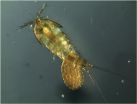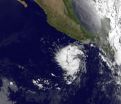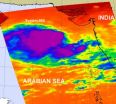(Press-News.org) A new crop of college graduates have just landed on the job market. Right now they're probably just hoping to get any job, if at all. However, for psychology majors, the salary outlook in both the short and long term is particularly poor, according to a new study which will be published in an upcoming issue of Perspectives on Psychological Science, a journal of the Association for Psychological Science.
It's generally known that psychology majors don't make a ton of money when they're starting out; they're not like engineering students, many of whom go straight into a job that pays well for their technical skills. But some people have suggested that a psychology major may pay off later in the career, as the critical thinking skills and literacy of the liberal arts education become more valuable. D.W. Rajecki of Indiana University was skeptical. "Psychology educators say liberal arts skills should be valuable in the workplace. Employers say they value liberal arts skills in employees," he says. "I say, 'show me the money.'" So, with Victor M.H. Borden, he set out to examine several data sets on earnings for people in different fields.
As expected, they found that psychology majors' median starting salary of $35,300 is well below the average for college graduates. But they found that this is also true at midcareer, when psychology majors are still paid below the average. They fare particularly poorly when compared to graduates in other science fields, engineering, and health.
"Face it, wages are tied to specific occupations, and real-world data show that psychology alumni just don't work in areas that pay top dollar," says Rajecki. Advanced degrees don't help, either. "Even psychology professors obtain appointments at the lower end of that salary scale."
Rajecki doesn't think this means 18-year-olds should stop choosing psychology as a major. "Psychology is a remarkable academic discipline that seems to get more interesting every passing year. Why should any student avoid the field?" he says. And, of course, money isn't the only thing that matters. But when academic counselors are giving students advice, they should make it clear that psychology isn't necessarily the road to riches.
###
For more information about this study, please contact: D. W. Rajecki at dwrajecki@sbcglobal.net.
Perspectives on Psychological Science is ranked among the top 10 general psychology journals for impact by the Institute for Scientific Information. It publishes an eclectic mix of thought-provoking articles on the latest important advances in psychology. For a copy of the article "Psychology Degrees Employment, Wage, and Career Trajectory Consequences" and access to other Perspectives on Psychological Science research findings, please contact Divya Menon at 202-293-9300 or dmenon@psychologicalscience.org.
Will psych majors make the big bucks?
2011-06-09
ELSE PRESS RELEASES FROM THIS DATE:
How cells' sensing hairs are made
2011-06-09
Body cells detect signals that control their behavior through tiny hairs on the cell surface called cilia. Serious diseases and disorders can result when these cilia do not work properly. New research from UC Davis published this week in the journal Nature Cell Biology provides new insights into how these cilia are assembled.
"It's a basic discovery, but with implications for understanding disease," said Jonathan Scholey, professor of molecular and cellular biology at UC Davis and senior author of the study. Understanding how cilia are assembled and function can help ...
'Thermal pollution' in rivers not fully mediated by gravel augmentation
2011-06-09
Although adding gravel to a river to replace lost sediments won't likely cool the whole river channel, it can create cool water refuges that protect fish from thermal pollution, according to a U.S. Forest Service Pacific Northwest Research Station study.
The research—featured in the June 2011 issue of Science Findings, a monthly publication of the station—is among the first to explore the interplay between sub-surface water flow and temperature in large rivers and is helping to guide river restoration strategies in the Pacific Northwest.
In the study, which began ...
Eating a high-fat diet may rapidly injure brain cells that control body weight
2011-06-09
Obesity among people who eat a high-fat diet may involve injury to neurons, or nerve cells, in a key part of the brain that controls body weight, according to the authors of a new animal study. The results will be presented Tuesday at The Endocrine Society's 93rd Annual Meeting in Boston.
"The possibility that brain injury may be a consequence of the overconsumption of a typical American diet offers a new explanation for why sustained weight loss is so difficult for most obese individuals to achieve," said presenting author Joshua Thaler, MD, PhD, a faculty member with ...
Can evolution outpace climate change?
2011-06-09
Animals and plants may not be able to evolve their way out of the threat posed by climate change, according to a UC Davis study of a tiny seashore animal. The work was published today (June 8) in the journal Proceedings of the Royal Society B.
The tide pool copepod Tigriopus californicus is found from Alaska to Baja California — but in a unique lab study, the animals showed little ability to evolve heat tolerance.
"This is a question a lot of scientists have been talking about," said study co-author Eric Sanford, an associate professor of evolution and ecology at UC ...
UAB first in US with cell-processing workstation
2011-06-09
BIRMINGHAM, Ala. – The University of Alabama at Birmingham has taken a significant step toward making sophisticated cell therapy a part of patient care with its acquisition of the first cell-processing workstation (CPWS) from SANYO North America Corporation (SANYO) in the United States.
Richard Marchase, Ph.D., vice president for Research and Economic Development at UAB, says "UAB has a rich history of breaking ground in the cell-therapy arena. We are thrilled that we were able to be the first in the United States to use SANYO's CPWS. This will add to our world-class ...
A double-satellite NASA-style view of the first tropical storm in eastern Pacific: Adrian
2011-06-09
The first tropical depression in the Eastern Pacific Ocean is now the first tropical storm, and two satellites are providing NASA insights into its thunderstorms, rainfall, and intensity. NASA satellite data on newly born Tropical Storm Adrian shows high cloud tops and moderate rainfall, indications that the storm is getting stronger, triggering a tropical storm watch in Mexico.
Tropical Depression 1E is the first tropical depression of 2011 and formed in the eastern Pacific Ocean early on June 7. By the morning of June 8 it had strengthened into Tropical Storm Adrian, ...
NASA imagery sees a reawakening of system 98A in the Arabian Sea
2011-06-09
System 98A has been bringing rains, gusty winds and churning up the surf along the Arabian Seacoast of west-central India for days, and NASA satellite imagery confirms that it is getting organized now that it has moved into open waters.
NASA's Atmospheric Infrared Sounder (AIRS) instrument onboard NASA's Aqua satellite captured an image on June 8 at 08:47 UTC (4:47 a.m. EDT) of the hundreds of thunderstorms that make up the low pressure area called System 98A. The low pressure area has now moved to the west-southwest and away from Mumbai, India. In fact, today it is located ...
Stable temperatures boost biodiversity in tropical mountains
2011-06-09
Durham, NC — We often think of rainforests and coral reefs as hotspots for biodiversity, but mountains are treasure troves for species too —especially in the tropics, scientists say. But what drives montane biodiversity? The diversity of plants and animals in tropical mountain ranges may have something to do with the stable seasonal temperatures found in the tropics relative to higher latitudes, says a new study by scientists working at the US National Evolutionary Synthesis Center.
The study, based on nearly 200 species of bats, birds, frogs, lizards and snakes, also ...
The diving bell and the water spider: How spiders breathe under water
2011-06-09
Gazing into the depths of a pond, it's hard to miss the insects that whirl and zip beneath the surface. However, only one species of spider has joined them: the diving bell spider, Argyroneta aquatica. 'It is an iconic animal; I had read about the spider as a small boy in popular literature about ponds,' says Roger Seymour from the University of Adelaide. According to Seymour, each spider constructs a net of silk in vegetation beneath the surface and fills it with air carried down on its abdomen. The spiders spend their entire lives submerged and even lay their eggs in ...
Study suggests police officer wrongfully convicted for missing the 'obvious'
2011-06-09
CHAMPAIGN, Ill. — In a new study, researchers tested the claims of a Boston police officer who said he ran past a brutal police beating without seeing it. After re-creating some of the conditions of the original incident and testing the perceptions of college students who ran past a staged fight, the researchers found the officer's story plausible.
The study appears in the peer-reviewed open access journal i-Perception.
Psychology professors Christopher Chabris (Union College) and Daniel Simons (University of Illinois) often explore the limits of visual attention – ...



